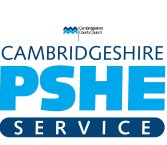To nurture the skills of resilience is key to providing young people with the ability to cope with stress, adversity, failure and challenges. Resilience is evident when young people have a greater ability to “bounce back” when faced with difficulties and achieve positive outcomes.
Resilience empowers the individual to understand how feelings and emotions are affected and can be managed at changing, challenging or difficult times
Change (physical, social and emotional) is a normal, positive and integral part of life for everyone, children and adults, from the moment we are born. Change can sometimes be welcome and sometimes challenging, and learning about it and developing the understanding and skills to manage it is an important element of a PSHE programme and wider school experience. There are changes that every child or young person will experience, such as changing class, changing teachers and changing schools. Many children will experience difficult and sensitive family changes, such as family break up or death.
Research indicates that children and young people want and need to talk through with a trusted adult the strong emotions involved in coping with loss and change. Often they will receive the support they need from home, although schools may provide links with other trusted adults who can help them if necessary.
It is helpful for children and young people to discuss and understand about managing change and the emotions involved before or away from a significant life event, not only when they are actually experiencing the change. Many children and young people who have experienced challenging life changes also feel that it is helpful to be able to share experiences and to realise that others have similar or related experiences. Many schools carefully plan transitions between key stages and recognise the benefit of familiarisation and careful introduction to new spaces, adults and routines. This provision is especially valuable when tailored to the specific needs of individuals.
By the end of primary school students should be able to
- that there is a normal range of emotions (e.g. happiness, sadness, anger, fear, surprise, nervousness) and scale of emotions that all humans experience in relation to different experiences and situations.
- how to recognise and talk about their emotions, including having a varied vocabulary of words to use when talking about their own and others’ feelings.
- where and how to seek support (including recognising the triggers for seeking support), including whom in school they should speak to if they are worried about their own or someone else’s mental wellbeing or ability to control their emotions (including issues arising online).
- key facts about puberty and the changing adolescent body, particularly from age 9 through to age 11, including physical and emotional changes.
Source: Relationships Education RSE and Health Education (DfE) Relationships Education, Relationships and Sex Education and Health Education guidance (publishing.service.gov.uk)
By the end of secondary school students should be able to
- how to talk about their emotions accurately and sensitively, using appropriate vocabulary.
- how to recognise the early signs of mental wellbeing concerns.
- the main changes which take place in males and females, and the implications for emotional and physical health.
Source: Relationships Education RSE and Health Education (DfE) Relationships Education, Relationships and Sex Education and Health Education guidance (publishing.service.gov.uk)
Local Support

Cambridgeshire and Peterborough 0 – 19 Healthy Child Programme – Health Visiting and School Nursing
Our team is made up of a variety of NHS staff with specific training and qualifications to support the health needs of children, young people and families in the community. In our teams we have Administrators, Assistant Practitioners, Health Visitors, Nursery Nurses, School Nurses, Staff Nurses, Students and Vision Screeners. Together we are able to offer a wide range of
Read More About Cambridgeshire and Peterborough 0 – 19 Healthy Child Programme – Health Visiting and School Nursing
Cambridgeshire Personal, Social and Health Education (PSHE) Service
Cambridgeshire Personal, Social and Health Education (PSHE) Service The Cambridgeshire PSHE Service provides guidance, consultancy, training and resources to support and enhance the health and wellbeing of children and young people and their learning. This includes the curriculum for PSHE and Citizenship: its content, approaches to teaching and learning and monitoring and assessment. We also
Read More About Cambridgeshire Personal, Social and Health Education (PSHE) Service
HEAR – the free to use mental health text service
NHS Cambridgeshire and Peterborough provides HEAR – the free to use mental health text service HEAR 85258 is being funded by NHS Cambridgeshire & Peterborough, in partnership with the national service SHOUT. The free to use text service provides real-time support to people who are struggling with their mental health across the county. When texting
Read More About HEAR – the free to use mental health text service


